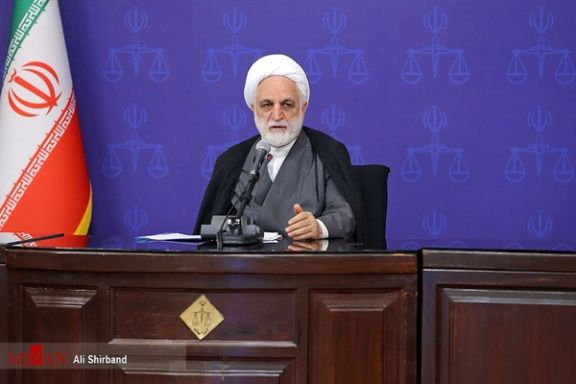Iran's Judiciary Chief Calls For Stronger Hijab Enforcement

Gholamhossein Mohseni Ejei, the head of Iran's judiciary has called for stronger implementation of hijab laws amid ever rising oppression in Iran.

Gholamhossein Mohseni Ejei, the head of Iran's judiciary has called for stronger implementation of hijab laws amid ever rising oppression in Iran.
Speaking on Sunday, Ejei emphasized the need for better utilization of existing laws by law enforcement, the Ministry of Interior, and the judiciary to enforce hijab, suggesting that more than “70% of the problems could be resolved through proper enforcement.”
The remarks come shortly after a speech by Ali Khamenei, the Supreme Leader of Iran, to officials where he reiterated the importance of compulsory hijab for women.
The legislative efforts surrounding hijab have been contentious. A bill, initially drafted by the government and later revised by hardline factions in parliament, proposed penalties including heavy fines for women not adhering to the prescribed Islamic dress code.
Amirhossein Bankipour, an MP supporting the compulsory hijab law, announced adjustments to address shortcomings in the bill, signaling its progression for final approval.
Meanwhile, voices within religious circles have urged for further hijab enforcement. Mohammad Javad Fazel Lankrani, a member of the Society of Seminary Teachers of Qom, condemned the defiance of hijab as a "sinister conspiracy" and said the Islamic hair covering is beyond personal choice.
International scrutiny over Iran's mandatory hijab laws has intensified, with human rights experts from the United Nations expressing concerns over systematic discrimination against women.
Amnesty International criticized the enactment of a three-year experimental period for the mandatory hijab law, denouncing it as a violation of women's rights.
Despite the government's efforts to suppress dissent, civil disobedience against compulsory hijab has grown, particularly since the controversial death of Mahsa Amini in 2022 which led to the Women, Life, Freedom uprising.